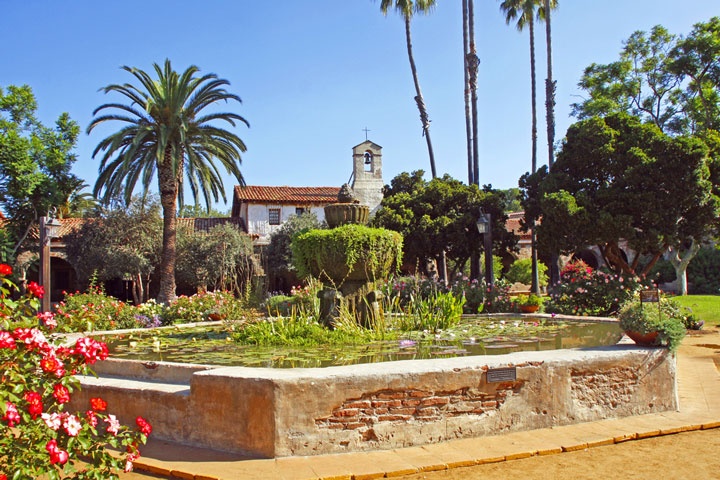Corny title, yes. But the saying is true regardless of the place. Especially in Puerto Rico. That's right, you guessed it. Today, we're going to be talking about the economy. Yay!
So first, a quick overview. To this day, Puerto Rico has one of the most dynamic economic structures in the entire Caribbean region. Its purchasing power GDP is $64.84 billion (2010). In order to better understand that, let's compare that to the U.S.'s $15.04 trillion and Haiti's $12.44 billion. The majority of their money came from their diverse agriculture, but recently money made from their industrial sector has surpassed the money made from their agriculture sales. This industrial sector also provides many citizens on the island with a source of income. When thinking about their general economy, it is important to remember the connection between the United States and Puerto Rico. For example, the minimum wage laws apply to Puerto Rico. Their currency is also the U.S. dollar, but it's commonly referred to by Puerto Ricans as the peso. They commonly trade with the United States. Lastly, tourism has always been a huge source of income for Puerto Rico.
Luckily, we all have a right to the census, so all of their detailed information is there. So if you want to know more, you're just a click away. http://www.census.gov/compendia/statab/2012/tables/12s1322.pdf
Unlike many other Latin American places, Puerto Rico does not have completely impoverished cities. Instead, like the United States, Puerto Rico has impoverished neighborhoods. San Juan is an awesome place to look at in order to understand the economy in Puerto Rico. San Juan, the capital of Puerto Rico, has holds neighborhoods with the wealthiest and poorest people. The wealthier neighborhoods are due to tourism. San Juan holds the most tourists on the entire island. I personally think it's because of the Bacardi Rum Factory. People sure do love their alcohol. My mother even went.
See:
Pictures are worth 1000 words . San Juan has areas like these:
As well as areas like these:
The image above is taken from one of the many caserios in San Juan. Caserios are like United States housing projects. They house families with low incomes. It's interesting that a place with so much money concentrated in one area can have poorer places such as these.
So first, a quick overview. To this day, Puerto Rico has one of the most dynamic economic structures in the entire Caribbean region. Its purchasing power GDP is $64.84 billion (2010). In order to better understand that, let's compare that to the U.S.'s $15.04 trillion and Haiti's $12.44 billion. The majority of their money came from their diverse agriculture, but recently money made from their industrial sector has surpassed the money made from their agriculture sales. This industrial sector also provides many citizens on the island with a source of income. When thinking about their general economy, it is important to remember the connection between the United States and Puerto Rico. For example, the minimum wage laws apply to Puerto Rico. Their currency is also the U.S. dollar, but it's commonly referred to by Puerto Ricans as the peso. They commonly trade with the United States. Lastly, tourism has always been a huge source of income for Puerto Rico.
Luckily, we all have a right to the census, so all of their detailed information is there. So if you want to know more, you're just a click away. http://www.census.gov/compendia/statab/2012/tables/12s1322.pdf
Unlike many other Latin American places, Puerto Rico does not have completely impoverished cities. Instead, like the United States, Puerto Rico has impoverished neighborhoods. San Juan is an awesome place to look at in order to understand the economy in Puerto Rico. San Juan, the capital of Puerto Rico, has holds neighborhoods with the wealthiest and poorest people. The wealthier neighborhoods are due to tourism. San Juan holds the most tourists on the entire island. I personally think it's because of the Bacardi Rum Factory. People sure do love their alcohol. My mother even went.
See:
Pictures are worth 1000 words . San Juan has areas like these:
 |
| Zip Line Site. http://www.caribbeanportreviews.com/SanJuanPR.htm |
 |
| Beach Cities Real Estate. http://www.bcre.com/San-Juan-Capistrano.php |
As well as areas like these:
 |
| Google Earth |
Sources:
"Puerto Rico." The World Factbook. www.cia.gov/library/publications/the-world-factbook/geos/rq.html (accessed February 24, 2012).
"Puerto Rico Economy." Welcome to Puerto Rico! History, Government, Geography, and Culture. http://www.topuertorico.org/economy.shtml (accessed February 24, 2012).
"The 2012 Statistical Abstract: Puerto Rico & the Island Areas." Census Bureau Homepage. http://www.census.gov/compendia/statab/cats/puerto_rico_the_island_areas.html (accessed February 24, 2012).
"United States." The World Facebook. https://www.cia.gov/library/publications/the-world-factbook/geos/us.html (accessed February 24, 2012).
"Haiti." The World Facebook. https://www.cia.gov/library/publications/the-world-factbook/geos/ha.html (accessed February 24, 2012).




